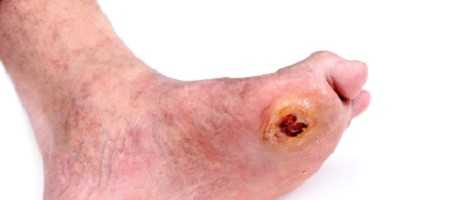A study has shown wound healing of ulcers in people with diabetes is better with EpiFix’s amniotic-tissue product.
Diabetic ulcers study
Dr Charles Zelen and colleagues at the Professional Education and Research Institute, Roanoke, Virginia, assessed 65 patients who were initially entered into a two-week run-in period.
The scientists noted their study was the first to analyse two approved advanced wound-care products – Apligraf and EpiFix – to treat chronic lower-extremity diabetic ulcers.
60 patients were eventually randomised to receive weekly treatments from EpiFix, Apligraf or standard wound care with collagen-alginate dressing.
There were 20 in each group, with investigators assessing the participants once a week for up to 12 weeks, or until one week after the diabetic ulcer had completely healed.
Study findings
Dr Zelen reported the healing of diabetic ulcers was decisively faster and more efficient with weekly applications of a dehydrated human amnion/chorion membrane allograft from EpiFix.
“Studies have shown that the longer a diabetic foot ulcer remains open, the more likely the ulcer is going to get infected and that the patient is going to lose their limb,” said Dr Zelen.
“You want to choose a product that is going to heal the fastest, and we’ve been able to show in this study and in our prior studies that the healing rate with EpiFix is greater than 90 per cent. I would say that EpiFix is the treatment of choice for diabetic ulcers.”







